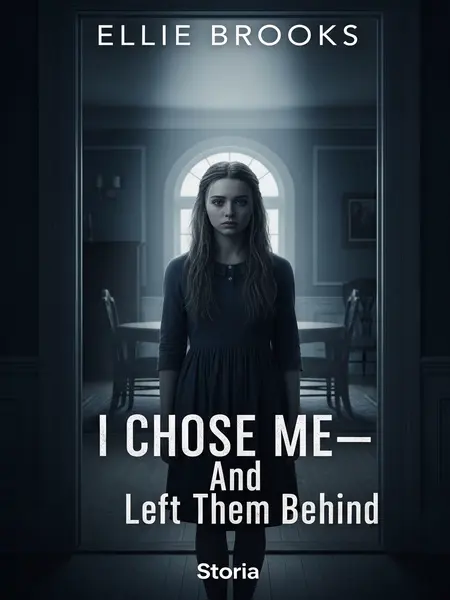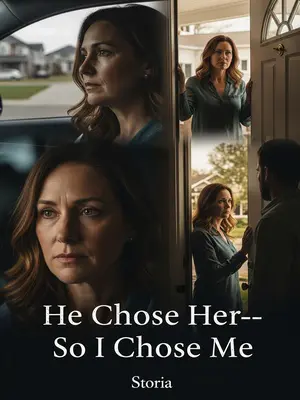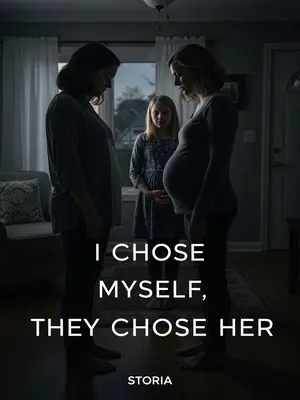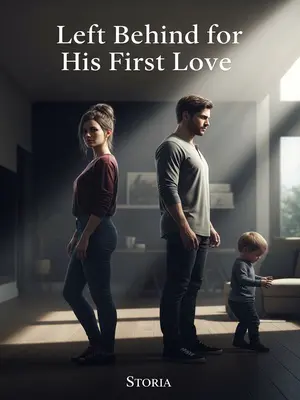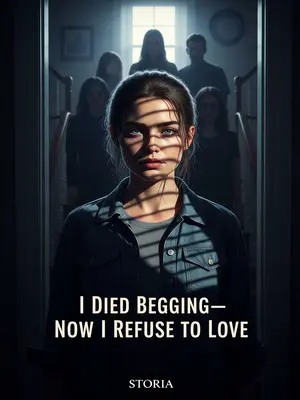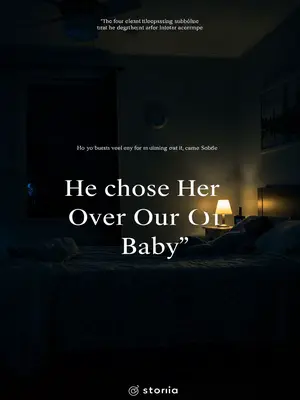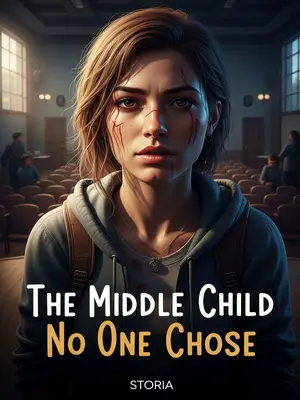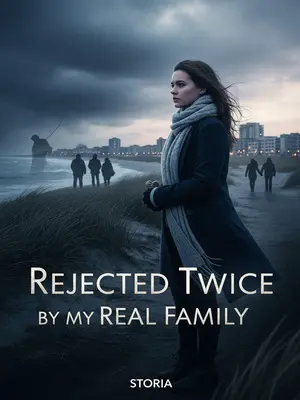Chapter 1: The Day I Let Go
Three years after they brought me back home, I jumped off the roof of our house.
The wind that day was sharp and biting, tugging at my hair as I fell, like it wanted to pull me back. But nothing could. Not anymore.
My soul hovered above the scene, weightless, almost curious. I watched, wondering if my parents and brother—who never looked at me without disdain—would finally break down over me. Maybe, just maybe, they’d realize what they’d lost.
But my dad just shook his head, all cold and distant. He looked down at my body and said, “Immature.”
For a moment, everything seemed to freeze. His voice echoed, flat and unimpressed, like I’d failed a pop quiz. He never raised his voice—he just shut the door on any feeling at all. Not for breaking herself.
My mom pressed her lips together and let out a sigh, as if a burden had been lifted from her shoulders. My heart twisted at the sight.
She straightened her blouse, smoothing the fabric, already thinking about what she’d tell the neighbors. Her relief was so obvious it stung more than any words.
My brother stood in front of the girl who’d taken my place—Savannah—shielding her from the sight of my broken body.
He moved quickly, gentle but firm, pulling Savannah into his chest and turning her away as everything played out below. He never looked at me.
But Savannah still burst into tears, and the whole family rushed to comfort her, hugging her tight.
They closed ranks around her, arms wrapped tight, voices soft and urgent. No one even glanced my way. It was as if my death had only happened to her.
They made a picture-perfect family. Just minus the daughter who never really belonged.
For a long moment, I just stared, shocked, then let out a bitter, almost relieved smile.
It was a strange, hollow kind of peace, the kind that comes from finally knowing the truth. Even if it’s ugly.
When I opened my eyes again, I was back at the moment they brought me home.
Everything felt sharper, more vivid. The scent of new paint in the foyer. The nervous energy buzzing in the air. The way the sunlight fell through the window, as if daring me to hope again.
Was this real? Realizing I’d been given another chance, I sat in silence for a long while.
My hands trembled in my lap. I didn’t dare move, didn’t dare trust this second chance. I just listened to the ticking of the clock on the wall. Every second stretched out forever. Was this how it would always be?
My parents, eyes red, talked about how much they’d missed me, how guilty they felt over the years.
Their voices were thick with emotion, but I saw the calculation in their glances, the way they measured my reaction. Like they were auditioning for a part they never wanted to play.
They said they’d missed me for ten years!
I blinked, the words ringing in my ears. Ten years—a whole childhood lost in the shuffle. Their words floated in the air, sweet and sticky as honey. But I could taste the bitterness underneath.
In my last life, I believed them. I cried, threw myself into their arms, actually believing I finally had a home. That someone finally loved me.
I remember the way my chest ached from crying, the hope swelling inside me until it nearly choked me. I believed every word. Desperate for a place to belong.
Yet, three years later, I was tearing at my own hair, screaming as I jumped off the roof in front of them. Hoping my life would buy even a scrap of their love.
I’d clung to that hope like a lifeline, until my hands were raw and bloody. In the end, it slipped through my fingers anyway.
But no one ever loved me.
The realization was cold, final. It settled over me like a heavy winter coat, smothering any last ember of hope.
So now, I felt nothing at all. Just quiet, like stone.
It was almost a relief, honestly. Numbness is easier than heartbreak.
“Honey, are you still getting used to things? It’s okay, Mom’ll help you pick a room. You can choose whichever you want!”
Her voice was too bright, too eager, like she was trying to make up for all the years she’d missed. She reached for my hand, her fingers cool and unfamiliar.
When I didn’t answer, my mother took my hand and led me upstairs to the third floor.
She chattered the whole way, pointing out family photos, the vase of fake flowers, the way sunlight danced on the banister. She acted like this was the most exciting thing in the world.
My dad followed, smiling, calling my brother, Carter, and telling him to hurry home.
He tapped his phone impatiently, his voice echoing down the hallway. The word ‘family’ sounded foreign coming from him.
Carter just replied with one word: “Busy.”
His tone was clipped, dismissive, like whatever was happening outside our home mattered more than anything inside it.
My father looked annoyed, my mother a bit embarrassed, explaining to me, “Your brother’s really busy. He handles most of the business for the family. He only comes home on weekends.”
She offered a tight smile, as if that explained everything. Like love could be scheduled in between business meetings.
I believed it in my last life.
I wanted to believe it. I wanted to believe in all of them. But this time, the words slid right off me.
This time, I didn’t care. Believing it again wouldn’t change anything.
It was easier to go along with the lie than to fight it. I nodded, playing along.
Up on the third floor, every room was bright and cozy, decorated in soft pastels and fairy lights.
It looked like something out of a magazine—fluffy rugs, twinkling lights, walls painted in gentle shades of blush and mint. Everything carefully curated. Nothing out of place.
“Ellie, pick. Any room you want!” my father said with a smile.
His voice was loud, performative, like he was trying to sell me something. I wondered if he even knew what I wanted.
My eyes landed on the room closest to the stairs.
It felt safe, somehow, being near the exit. The door was open, sunlight spilling over a neatly made bed, warming the air.
On the bed inside, there was a fluffy teddy bear.
Its fur was golden and soft, a red ribbon tied around its neck. It looked so inviting. So out of place in this house.
In my last life, I was drawn to it instantly and thought my parents really loved me, so I chose that room right away.
I remember hugging that bear tight, burying my face in its fur. A welcome home gift, just for me.
I liked that bear.
There was something comforting about it, something that reminded me of simpler times.
Before everything got so complicated.
But my parents’ faces shifted a little. They exchanged a glance, then quickly smiled, “Ellie, we forgot to mention, this room is your sister Savannah’s.”
Their smiles didn’t reach their eyes. The air in the hallway turned colder.
Heavy with unspoken words.
“Savannah’s so thoughtful. She cleared out her own room and said to let you choose, so you should stay in this one—it’s the biggest…”
My mother’s voice trailed off, as if she was waiting for me to refuse, to make things easier for everyone.
At the time, I blinked, feeling grateful. “My sister gave me her room? She’s so sweet.”
I clutched the bear to my chest, my heart swelling with gratitude.
I wanted so badly to belong.
I still liked that bear. Liked that room.
The sunlight made everything glow.
For a moment, I let myself believe this was my home.
My parents exchanged another glance, wanting to say something but stopping themselves.
I didn’t notice the tension in their shoulders, the way my mother’s fingers twisted her wedding ring.
I was too lost in hope.
But I was already too happy.
Running in and hugging the bear without hesitation.
I pressed my face into its fur, breathing in the faint scent of lavender. It felt like a promise.
Even if it was a lie.
Just then, Savannah came home with her backpack slung over one shoulder.
Her steps were light, almost bouncing.
The sound of the front door echoed up the stairs.
Savannah and I are the same age, fifteen.
